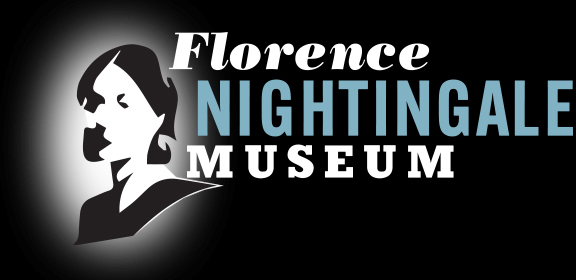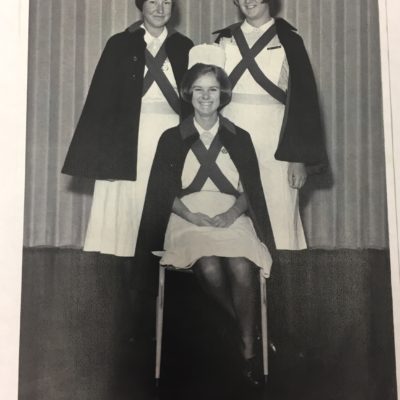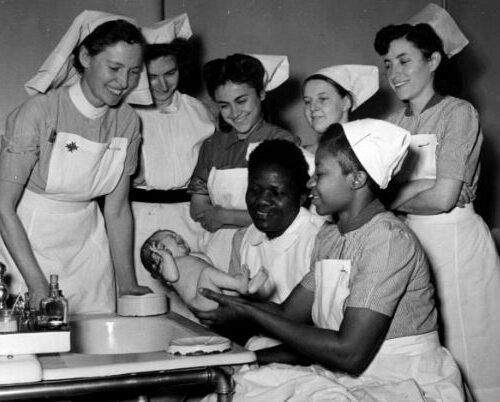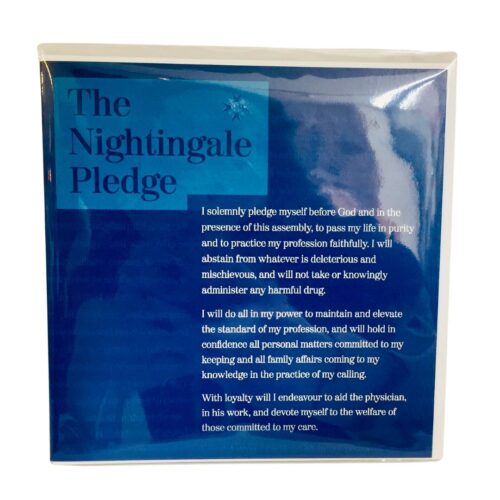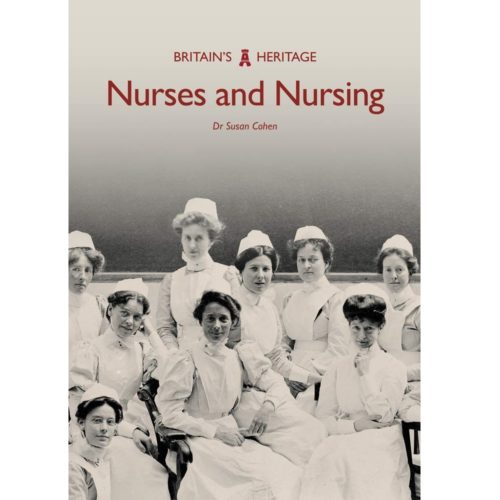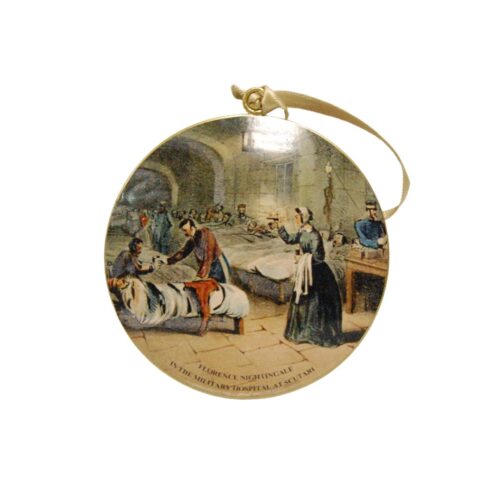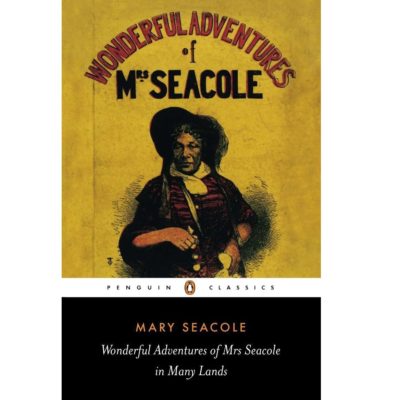-
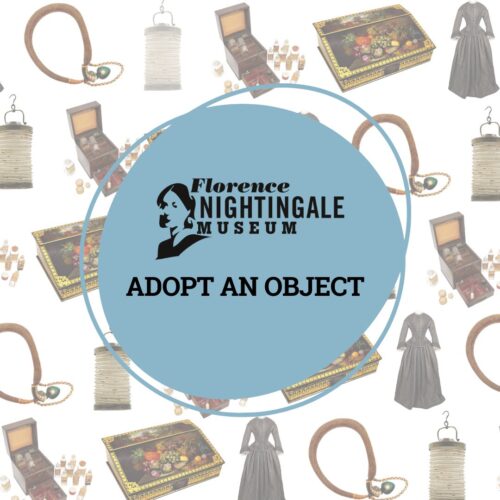 The Florence Nightingale Museum is pleased to announce our Adopt an Object scheme. We have chosen some of our key objects for you to adopt either for yourself, as a gift for someone or on a corporate basis. Your donation will go directly towards looking after our fantastic collection. Your adoption will last for 12 months.
The Florence Nightingale Museum is pleased to announce our Adopt an Object scheme. We have chosen some of our key objects for you to adopt either for yourself, as a gift for someone or on a corporate basis. Your donation will go directly towards looking after our fantastic collection. Your adoption will last for 12 months. -
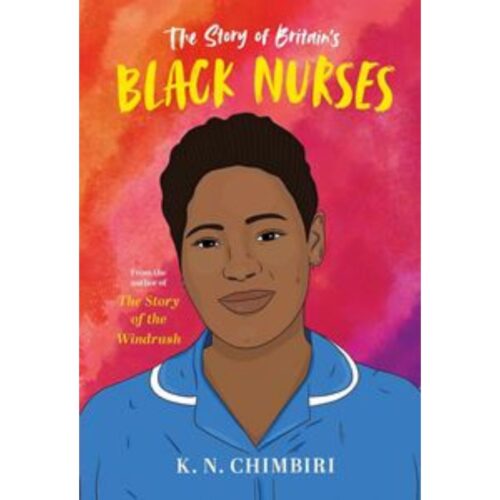 A wonderful celebration of the fascinating and seldom heard stories of Britain’s Black nurses. From ancient and medieval Africa, through colonisation and enslavement, through wars, times of great change and onwards … to the creation of the NHS and beyond, the story of nursing has always also been the story of Britain’s Black nurses. This story includes many incredible nurses from around the world: talented, skilful, innovative, hardworking and resilient
A wonderful celebration of the fascinating and seldom heard stories of Britain’s Black nurses. From ancient and medieval Africa, through colonisation and enslavement, through wars, times of great change and onwards … to the creation of the NHS and beyond, the story of nursing has always also been the story of Britain’s Black nurses. This story includes many incredible nurses from around the world: talented, skilful, innovative, hardworking and resilient -
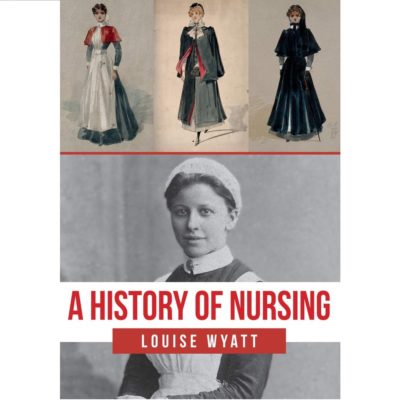 A History of Nursing explores the history of nursing by investigating the earliest records of the caring profession, how it progressed and what established it along the way to becoming the nursing we see today. It starts at the beginning of the story - how, once upon a time, all we had to depend on was Mother Nature. How did nursing go from being knowledge handed down through ancient scripts, folklore and sometimes by accident, to the degree-level, accountable practice of modern times? And why do nurses not wear hats anymore? A History of Nursing answers all these questions and more.
A History of Nursing explores the history of nursing by investigating the earliest records of the caring profession, how it progressed and what established it along the way to becoming the nursing we see today. It starts at the beginning of the story - how, once upon a time, all we had to depend on was Mother Nature. How did nursing go from being knowledge handed down through ancient scripts, folklore and sometimes by accident, to the degree-level, accountable practice of modern times? And why do nurses not wear hats anymore? A History of Nursing answers all these questions and more. -
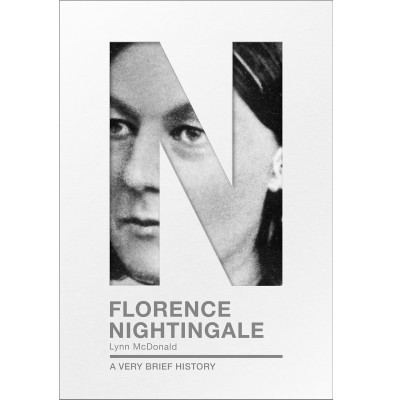 Concise historical introduction to Florence Nightingale and her continuing influence on the world. Florence Nightingale is widely known as the founder of modern nursing. She is also a brilliant and highly influential social reformer. Written by a world authority, this brief history explores Nightingale’s background and motivations. It also offers an informed assessment of the scale and significance of her legacy. It has been called timely and important by Alasdair Redfern, Bishop of Derby 2005-2018.
Concise historical introduction to Florence Nightingale and her continuing influence on the world. Florence Nightingale is widely known as the founder of modern nursing. She is also a brilliant and highly influential social reformer. Written by a world authority, this brief history explores Nightingale’s background and motivations. It also offers an informed assessment of the scale and significance of her legacy. It has been called timely and important by Alasdair Redfern, Bishop of Derby 2005-2018.
